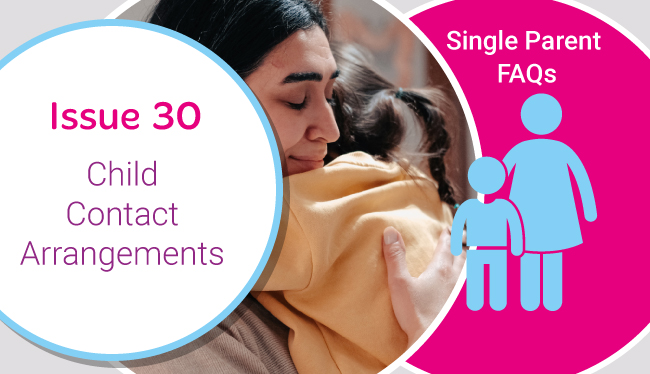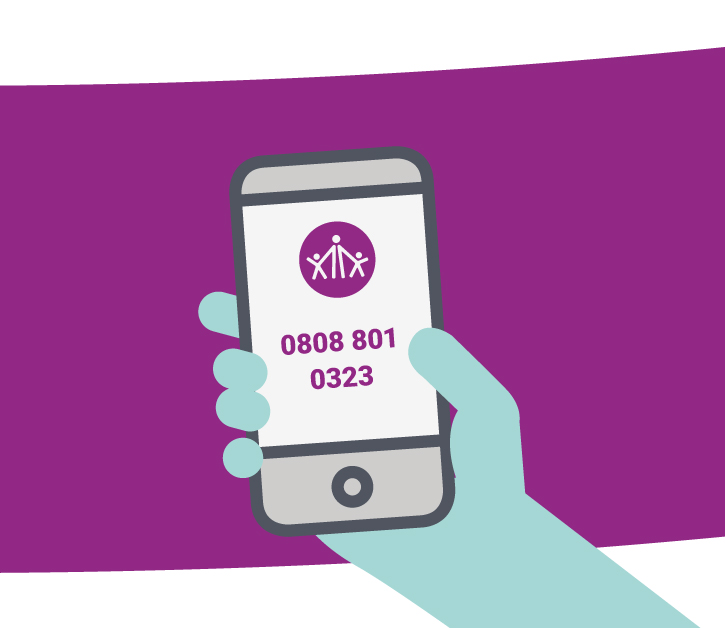Single Parent FAQs: Child Contact Arrangements – Issue 30

27/05/2024
Our advice and information team who work on our Lone Parent Helpline, webchat and Ask a Question feature, receive questions from single parents from across Scotland every day.

Call the Lone Parent Helpline 0808 801 0323
Take a look at the answers to the most frequently asked questions on Child Contact Arrangements:
My husband and I have recently separated. How do I sort out contact arrangements?
A ‘Parenting Plan’ is a voluntary agreement between you and your child’s other parent about arrangements for your children.
They’re used by parents who are separating, or who have never lived together as a couple, instead of asking a court to decide.
You can choose what you need to agree on in your Parenting Plan. For example, where your children will live, who else can look after them or how they’ll spend school holidays and birthdays.
My ex partner and I have recently separated and he has left the family home. How often should he be having contact with the children?
Everyone’s families circumstances are different. What works for one family might not work for another family. There is no right or wrong amount of contact. Therefore, it is good to try out some different contact arrangements and see what works well for your own family circumstances.
My ex partner never turns up on time and the children are always upset. How can I make him stick to the arrangements?
This can be really upsetting for children and for you. It may be worth asking the other parent if they want to change times slightly so that they can be on time and prevent the children from being upset.
I have recently separated from my abusive husband and I’m worried about contact arrangements.
If you are worried about seeing your ex-partner, it can be useful to ask a family member or friend to do the handover and pass on any information about your children to the other parent. For older children, you can make arrangements for the other parent to pick them up from school and then drop them back off at school.
My ex-partner has addiction issues and I’m worried about my children having contact with him. Is there a service that would help to make sure contact arrangements are put in place that ensure the safety of the children?
Relationship Scotland have 41 contact centres around Scotland. The central concept of a child contact centre is to offer a safe, friendly, neutral, child-centred environment for children to meet their non-resident parent or family member.
I have received a lawyer’s letter from my ex-partner about contact issues that we are having. He wants shared care but I feel that is not in the best interests of our children. Would I be able to get legal aid to represent me and the children?
The Scottish Legal Aid board has an eligibility estimators that allow you to input your details and give you an idea if you qualify financial assistance.
We have been separated for 3 years and contact has always worked well. However, recently the children have been upset and don’t want to stay overnight. They are fine during the day and then become upset at night time.
Depending on the age of the children, you could try to talk to them and see if there is something upsetting them at night time. You could also discuss changing contact arrangements with the other parent until the children become more settled again and you can return to the previous arrangements.

See our previous issues of Single Parent FAQs on:
- Scottish benefits
- Separation
- Having a baby
- Housing options
- Child maintenance
- Child contact
- Universal Credit
- Getting back into education as a single parent
- Financial support for single parents
- Bridging payments and help for Christmas
- Social Security Scotland
- What happens when my child gets older
- Separation and divorce
- Support for students
- Domestic abuse
- When does Child Benefit stop?
- Adult Disability Payments
- Child Maintenance
- What happens when my child gets older (2)
- Cost of Living
- Summer holidays
- What happens when my child gets older
- Universal Credit Managed Migration
Remember you can submit your own question via the Ask A Question feature on our website any time and our expert advisers will respond.